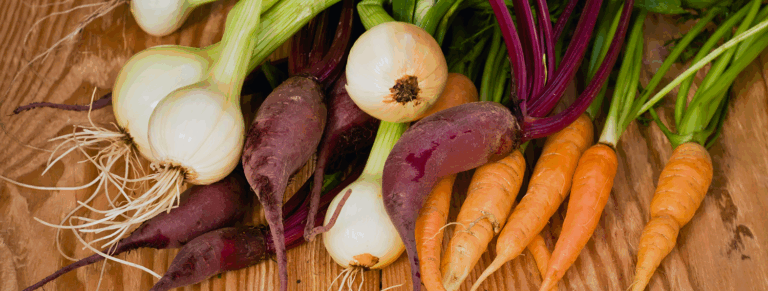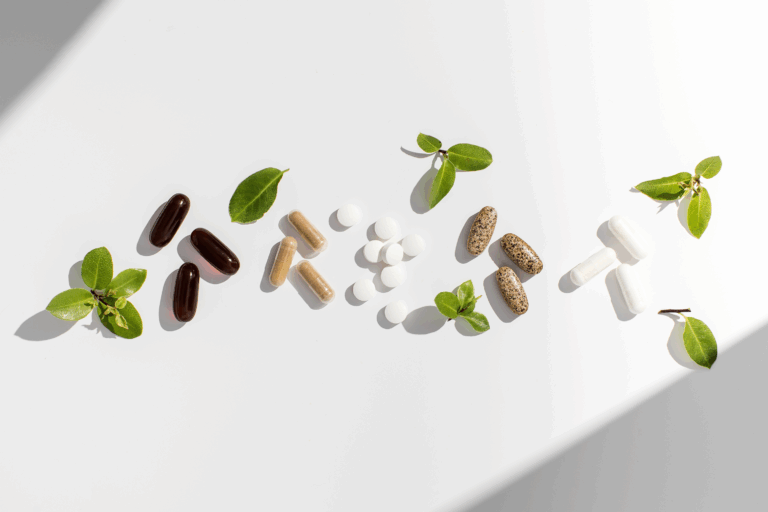Probiotic Yeast for Gut Health
Summary
Yeasts can function as probiotics, colonizing in the GI tract and supporting a healthy gut environment. Studies indicate that supplementation with various yeast species can help prevent and treat intestinal infections and inflammatory conditions.
Probiotic Yeast
Probiotics are live microorganisms that exert a health benefit when consumed in adequate amounts. Probiotics commonly contain bacterial strains, but yeasts can also function as probiotics. In the gut, probiotic yeasts exert anti-inflammatory and immune-modulatory actions to increase gut health.1 For example, S. boulardii can interact with resident bacteria, altering the composition of the gut microbiome.1 Supplementary yeasts are especially useful when there is concomitant antibiotic use as probiotic bacterial strains will not be effective when administered with antibiotics.1 Importantly, yeast probiotics are often added to current recommended treatments as a complementary approach, not a replacement.
Several clinical trials have found that supplementation with S. boulardii can prevent and treat intestinal infections as well as inflammatory conditions.1 It is particularly effective against GI diseases characterized by acute diarrhea, including antibiotic-associated diarrhea, recurrent C. difficile-associated diseases, and traveler’s diarrhea.1,2 Supplementation with S. boulardii reduced occurrence of diarrhea for those with C. difficile-associated diseases when used in combination with antibiotics, and it prevented traveler’s diarrhea when combined with bacterial probiotics.3,4 Mechanistically, S. boulardii slows gut motility in diarrheal conditions by positively influencing the composition of the gut microbiome which promotes normal bowel regularity.5
| Several clinical trials have found that supplementation with S. boulardii can prevent and treat intestinal infections as well as inflammatory conditions. |
Probiotic yeast can help with other GI conditions, including inflammatory bowel disease (IBD). When combined with conventional therapy, S. boulardii reduced the number of bowel movements in individuals with IBD as well as the percentage of patients that experienced clinical relapse after six months.6,7 The ability of yeast to modulate immune function and reduce inflammation is particularly relevant to IBD, as it is characterized by an abnormal gut immune response and intestinal inflammation. Additionally, IBD patients, especially those with Crohn’s disease, sometimes display antibodies against S. cerevisiae, which may indicate those patients have an inappropriate immune response to a common fungus which resides in the gut.8 Levels of S. cerevisiae tend to be lower in individuals with IBD as well.9
For individuals with irritable bowel syndrome (IBS), a chronic condition characterized by abdominal pain and changes in bowel habits, treatment with S. boulardii reduced the daily number of stools and improved their consistency for those with diarrhea.10 Interestingly, for IBS-C, IBS characterized by constipation, a specific strain of S. cerevisiae helped alleviate abdominal pain, resulting in higher reports of quality of life in patients.11 Taken together, these studies indicate that probiotic yeasts are able to restore intestinal homeostasis.
Risks and Potential Problems
While many probiotic yeasts are considered safe and well-tolerated, they are not suitable for every population. Small intestinal fungal overgrowth (SIFO) can occur when an excessive number of fungal organisms colonize in the GI tract, causing symptoms.12,13 Patients with underlying bacterial dysbiosis, use of antibiotics, proton pump inhibitors, or steroids, and immunocompromised patients may be at increased risk.12,13 Additionally, estrogen can stimulate the growth of C. albicans, increasing risk of overgrowth in the intestinal tract but also within the reproductive system.8
| Patients with underlying bacterial dysbiosis, use of antibiotics, proton pump inhibitors, or steroids, and immunocompromised patients may be at increased risk for small intestinal fungal overgrowth (SIFO). |
Foods that Promote Healthy Yeast Balance
Dietary choices contribute yeast colonization in the gut in addition to the use of probiotic yeasts. The type and quantity of nutrients can affect yeast balance, but the overall influence of diet on specific yeast species is not well understood.14 It appears that high consumption of carbohydrates can lead to an increase in Candida species, although other studies have demonstrated that a plant- or animal-based diet also increase Candida levels.8,14 Other dietary factors known to alter yeast levels include fermented foods, dietary fat, and alcoholic beverages.8 Research in this area is challenging because some foods may introduce fungi to the GI tract which are detected even if they do not commonly reside there.14
To best support gut health and yeast that contribute to it, a whole food diet is recommended, especially one rich in vegetables and starch-resistant legumes. Because processed sugars can feed Candida species, it is best to limit consumption of highly processed and sugar-rich foods. Additionally, lean protein and healthy fat intake, especially high in polyunsaturated fatty acids can help improve overall gut health and decrease inflammation. This will in turn promote a healthier yeast population.
Yeast are less abundant microbes, but they play a critical role in digestive function and gut health, including modulating the immune response and reducing inflammation. Several clinical trials have demonstrated that supplementation with probiotic yeasts, often in combination with conventional therapeutic strategies, can prevent certain GI conditions or alleviate symptoms. Supplemental yeast may serve as a prudent intervention and an integral component of protocols for practitioners seeking to ameliorate symptoms and optimize overall digestive function in GI patients.
- Zanello, G., Meurens, F., Berri, M., Salmon, H. (2009). Saccharomyces boulardii effects on gastrointestinal disease. Curr Issues Mol Biol, 11:47.
- McFarland, L.V. (2010). Systematic review and meta-analysis of Saccharomyces boulardii in adult patients. World J Gastroenterol, 16(18):2202.
- McFarland, L. V., Surawicz, C. M., Greenberg, R. N., et al. (1994). A randomized placebo-controlled trial of Saccharomyces boulardii in combination with standard antibiotics for Clostridium difficile disease. JAMA, 271:1913.
- McFarland, L.V. (2007). Meta-analysis of probiotics for the prevention of traveler’s diarrhea. Travel Med Infect Dis, 5:97Tian, Y., Gou, W., Ma, Y., Shuai, M., Liang, X., Fu, Y., Zheng, J.-S. (2023). The Short-Term Variation of Human Gut Mycobiome in Response to Dietary Intervention of Different Macronutrient Distributions. Nutrients, 15:2152.
- Gu, Y., Wang, C., Qin, X., Zhou, B., Liu, X., Liu, T., Xie, R., Liu, J., Wang, B., Cao, H. (2022). Saccharomyces boulardii, a yeast probiotic, inhibits gut motility through upregulating intestinal serotonin transporter and modulating gut microbiota. Pharmacol Res, 181:106291.
- Plein K, Hotz J. (1993). Therapeutic effects of Saccharomyces boulardii on mild residual symptoms in a stable phase of Crohn’s disease with special respect to chronic diarrhea–a pilot study. Z Gastroenterol, 31(2):129-34.
- Guslandi, M., Giollo, P., and Testoni, P. A. (2003). A pilot trial of Saccharomyces boulardii in ulcerative colitis. Eur J Gastroenterol Hepatol, 15:697.
- Shankar, J. (2021). Food Habit Associated Mycobiota Composition and Their Impact on Human Health. Front Nutr, 8:773577.
- Sun, S., Xu, X., Liang, L., Wang, X., Bai, X., Zhu, L., He, Q., Liang, H., Xin, X., Wang, L., Lou, C., Cao, X., Chen, X., Li, B., Wang, B., Zhao, J. (2021). Lactic Acid-Producing Probiotic Saccharomyces cerevisiae Attenuates Ulcerative Colitis via Suppressing Macrophage Pyroptosis and Modulating Gut Microbiota. Front Immunol, 12:777665.
- Maupas, J., Champemont, P., and Delforge, M. (1983). Treatment of irritable bowel syndrome with Saccharomyces boulardii: a double-blind, placebo-controlled-study. Med Chir Dig, 12:77.
- Mourey, F., Decherf, A., Jeanne, J.-F., Clément-Ziza, M., Grisoni, M.-L., Machuron, F., Legrain-Raspaud, S., Bourreille, A., Desreumaux, P. (2022). Saccharomyces cerevisiae I-3856 in irritable bowel syndrome with predominant constipation. World J Gastroenterol, 28(22):2509.
- Erdogan, A., Rao, S.S.C. (2015). Small intestinal fungal overgrowth. Curr Gastroenterol Rep, 17(4):16.
- Jawhara, S. (2022). How Gut Bacterial Dysbiosis Can Promote Candida albicans Overgrowth during Colonic Inflammation. Microorganisms, 10(5):1014.
- Tian, Y., Gou, W., Ma, Y., Shuai, M., Liang, X., Fu, Y., Zheng, J.-S. (2023). The Short-Term Variation of Human Gut Mycobiome in Response to Dietary Intervention of Different Macronutrient Distributions. Nutrients, 15:2152.







